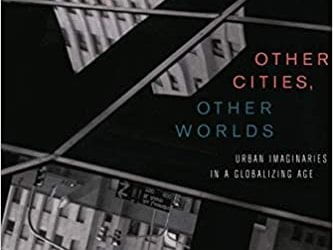The International Year of Astronomy 2009
Help People Rediscover Their Place in the Universe
Tabare Gallardo, Instituto de Física, Facultad de Ciencias, Montevideo, Uruguay.
I think that astronomy is important for Latin America. By means of astronomy, people can come closer to science. The International Year of Astronomy 2009 will be beneficial by stimulating scientific activities for both the public and pupils in school. We have planned many activities in partnership with other Latin American countries, such as Olympiads of Astronomy and Astronautics for high school students, 3D photographs of the Moon, and determining the Moon’s distance from the Earth by measuring its parallax. I think that the Year will lead to increased scientific and educational partnerships with Western countries. We are motivated by IYA2009 to share our experience in astronomy education at high school and university levels with other countries. I hope that the events planned for 2009 will help to overcome the strong influence that pseudo-sciences have in Latin American popular cultures.
Jose Roberto Velez Munera, Presidente de la RAC (Colombian Astronomical Network – RAC)
In Latin America astronomy is vitally important. It helps to stimulate the social, cultural, educational and intellectual development of towns. It is an integral part of scientific groups and investigation centres. Therefore, I believe that the International Year of Astronomy 2009 is very beneficial for Latin America, and of course the scientific and educational level of Western countries will increase ours. IYA2009’s cultural impact is unquestionable.
César Briceño, Centro de Investigaciones de Astronomía, Venezuela
Astronomy is of paramount importance to countries like Venezuela. Astronomy is an ideal vehicle to convey the wonders and importance of science to the general public, and especially to children. Nothing inspires more than a beautiful astronomical image or produces greater awe than the new technological achievements of modern ground-based and space observatories. Professional astronomy in our countries has been a powerful force driving scientific and technological development, with more young scientists and scientific facilities.
Silvia Torres Peimbert, Mexico
I believe that IYA2009 will be beneficial to Mexico, because it will call attention to science. Of course the price to pay is that there will be a lot of effort from the astronomers in the activities of IYA2009 with the corresponding loss of activity in their primary mission (research). But many of our astronomy colleagues are deeply committed to participating in this celebration.
Costa Rica has Astronomy in the Park, featuring visits to communities and schools to observe the skies with guides and equipment. Colombia had an Astronomy Festival in Villa De Leyva.
Cuba will be opening a new Planetarium, GOTO, obtained by the ODA Cultural Grant Aid of the Government of Japan, and an Interactive Cultural Center for Science and Technology depicting astronomical motives in the Old Town of Havana.
Mexico also had a large event at the end of January, organizing sky viewing events and lectures for the public at 17 archaeological sites and 5 historic ones, a magic night where everybody could contemplate the Milky Way and the wonders of the sky.
Throughout 2009, there will be in Peru a Travelling Telescope, inviting children for a viewing of the sky, with the motto: “Astronomers and condors fly away to the stars with the Peruvian children.”
Meanwhile, Uruguay will hold astronomy Olympiads, first at the national and then at the Latin-American level. This will be a knowledge competition, partly web-based, plus training in observational astronomy from a professional observatory.
Venezuela will foster professional astronomy, gathering Venezuelan professional astronomers and students, from within and working/studying abroad. This meeting will be coordinated with activities geared to the public.
A Lasting Legacy?
The evaluation of IYA2009’s impact will begin in 2010.We expect that in six months, a clear picture of the successes and failures of the Year will emerge. Longer-term effects will naturally take more time to assess. Hopes are high, but raising scientific awareness of the public at large is notoriously difficult, so our optimism is tempered with realism. Existing research and education programs, such as those instigated by ESO’s and ALMA’s investment in Chile, and long term programs, such as UNAWE and Galileo’s teacher training, will play an important role and keep the momentum in the future. Perhaps IYA2009 will be a catalyst to increase Latin American involvement in astronomy and help to foster collaborations among the Latin American countries and with the rest of the world. This would be beneficial for all.
Spring 2009, Volume VIII, Number 3
Catherine Cesarsky, from CEA in France, is President of the International Astronomical Union and former Director General of ESO, the European Southern Observatory. She studied Physics in Argentina and obtained a PhD in astronomy at Harvard in 1971.
Pedro Russo, from the International Astronomical Union and ESO, is the global coordinator of the International Year of Astronomy 20009 and editor-in-chief of the Journal Communicating Astronomy with the Public.
Lee Pullenis staff writer for the International Year of Astronomy 2009 Secretariat and Editor of the IYA2009 Cornerstone project “Cosmic Diary”.
Related Articles
Editor’s Letter: The Sky Above, The Earth Below
When I first started working on this ReVista issue on Colombia, I thought of dedicating it to the memory of someone who had died. Murdered newspaper editor Guillermo Cano had been my entrée into Colombia when I won an Inter American Press Association fellowship in 1977. Others—journalist Penny Lernoux and photographer Richard Cross—had also committed much of their lives to Colombia, although their untimely deaths were …
Other Cities, Other Worlds
Author of a marvelous book that excavates the palimpsests of memories encrypted in the image-filled voids of Berlin, Andreas Huyssen extends his investigation of the urban imaginary in…
Dirty Secrets, Dirty War: The Exile of Editor Robert J. Cox
t may be argued that Dirty Secrets, Dirty War: The Exile of Editor Robert J. Cox should have been written three decades ago, most likely in 1981, when Cox was enjoying, as I do now, a Nieman fellowship…





